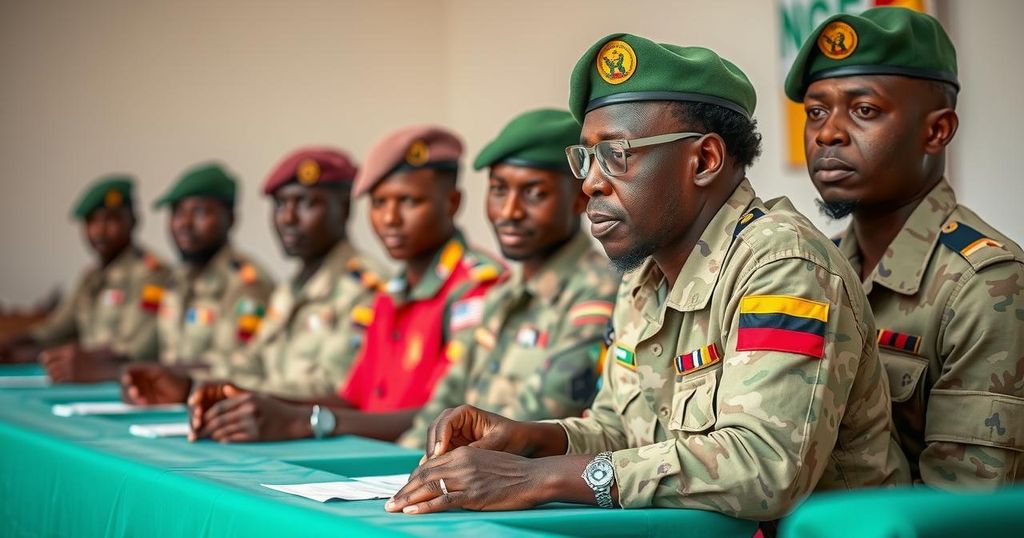Chad’s Election Officials Seek Military Protection Due to Election Violence
Chad’s electoral commission has sought military assistance to protect election officials and candidates due to rising violence before the December 29 elections. Opposition supporters have aggressively disrupted campaign activities of the ruling MPS party. With over 8.3 million registered voters, the polls are crucial for concluding a three-year transitional period. Yet, many opposition groups view the elections as a mere facade to strengthen Presidential power, leading to escalating tensions and calls for postponement.
Chad’s electoral commission has requested military support to ensure the safety of election officials and candidates in light of increased violence ahead of the upcoming elections scheduled for December 29. Reports have emerged of opposition supporters utilizing clubs and iron bars to obstruct rallies held by the ruling Patriotic Salvation Movement (MPS) party across various cities. The National Election Management Agency (ANGE) has indicated that the campaigning process for the parliamentary, local council, and regional elections is marred by disruptions and assaults on candidates and officials. This election is particularly significant as it concludes a three-year transitional period initiated following the death of longtime President Idriss Deby Itno in April 2021.
Assane Bairra, Vice President of ANGE, has expressed concern that escalating tensions could escalate into armed conflict unless military forces are deployed promptly. With over 8.3 million of the country’s 18 million civilians registered to vote, the elections involve approximately 180 political parties fielding nearly 1,300 candidates for parliamentary positions, alongside thousands more in local council elections. Furthermore, more than 1,000 observers are accredited to oversee the electoral process.
However, a coalition comprising over 75 opposition parties and civil society organizations has deemed the elections a “masquerade,” asserting that President Mahamat Idriss Deby Itno and the MPS seek to solidify their hold on power through these votes. The opposition reported instances of violence, with their supporters reportedly attacking MPS campaign activities in several towns including Ndjamena and Moundou, while the military intervened to dismantle obstructions created by opposition forces.
Avocksouma Djona, leader of Chad’s Party of Democrats, claimed that his followers have obstructed campaigns from both MPS and opposing parties, pushing for the postponement of elections due to concerns regarding the legitimacy of the electoral management personnel appointed by Deby, who also oversees the constitutional court. The President has insisted that the forthcoming elections would be fair and transparent; however, opposition parties have dismissed his assertions as tactics to manipulate the electoral outcome.
Chad has been undergoing a tumultuous political transition following the assassination of President Idriss Deby Itno in 2021. His son, Mahamat Idriss Deby Itno, assumed the role of transitional president and has faced substantial criticism from opposition forces accusing him of manipulating the political landscape to maintain familial power. The upcoming elections are pivotal, as they signify a potential return to civilian governance after years of military rule. Yet, rising tensions indicate that political stability remains fragile as various factions engage in violent confrontations over campaign activities.
The request for military protection ahead of Chad’s forthcoming elections underscores a fraught political climate, with significant risks posed by increasing levels of violence between rival party supporters. The legitimacy of the electoral process is under scrutiny, as opposition groups allege attempts by President Deby to secure his party’s dominance. As Chad prepares for this electoral event, the unfolding situation reflects a challenging landscape for democracy and governance in the region.
Original Source: www.voanews.com




Post Comment